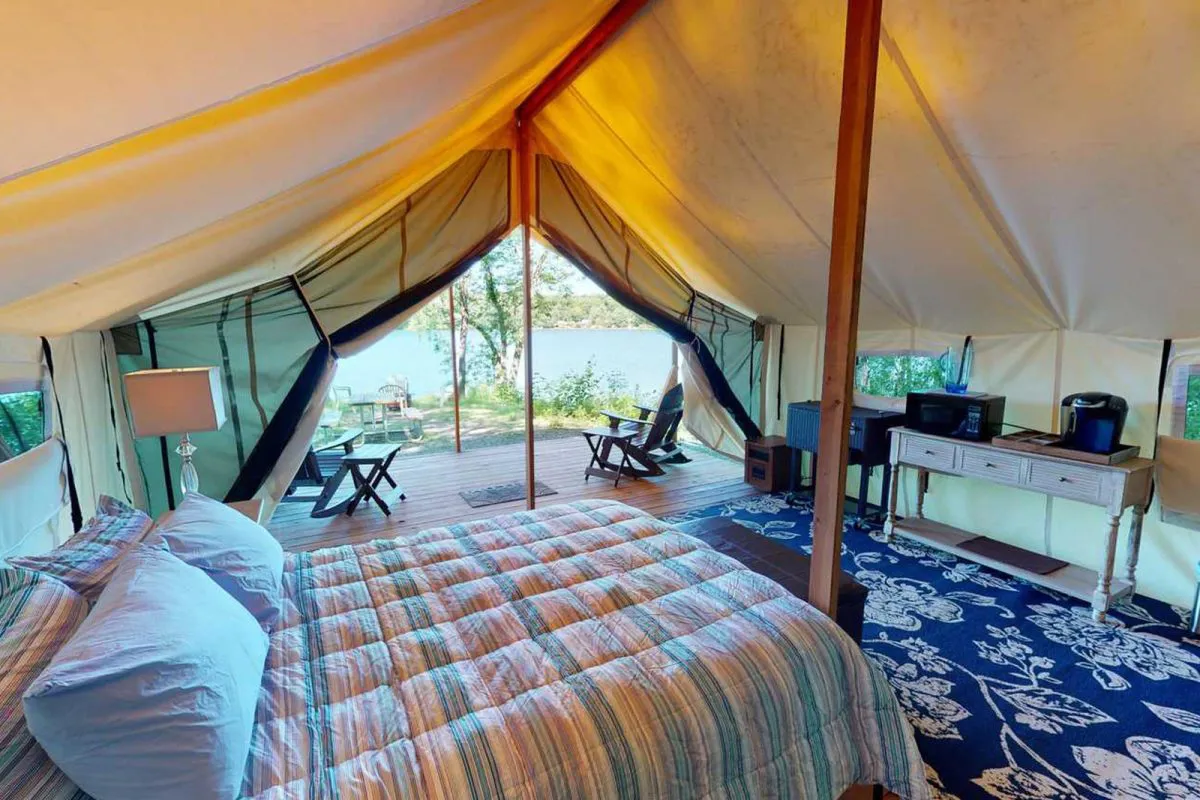The Benefits of Camping
Camping can still be a very active, enjoyable, and rejuvenating sport where you can get away from your routine, while also ensuring that you breathe the fresh air and spend enough exercise to be healthy and happy.
Choose a site in a suitable location to minimise impacts, at least 200 feet from water sources (to avoid contaminating it) and away from dense brush and sloped areas or valley bottoms.
1. Relaxation
In the near term, going outdoors reduces stress hormones and is known to produce a sense of wellbeing. Nature, in particular, offers the opportunity to get away from our daily habitats and the ceaseless allure of technology. The experience of camping offers many benefits.
Cooking in the outdoors; creating a temporary rudimentary shelter – these are wonderfully pleasurable activities that raise serotonin levels, the neurotransmitter involved in mood and happiness. Further, camping exertions that raise endorphin levels give us a cheery outlook, too.
Among the many benefits of camping is the practice of mindfulness, whose use has been shown to significantly reduce anxiety and stress levels. The need to cope with unfamiliar surroundings, the preparation of food over one of those campfires, and other camping activities force participants to concentrate on the here-and-now – a mental state that has been found to reduce rumination, worry, and to enhance a sense of calm and clarity.
2. Health
But camping holiday’s have a lot of benefit for your health, as by traveling you not onely are more active, but also you have more exposure to fresh air and sunlight. You also get to know about the nature and its surroundings better.
Health risks that a camper may encounter are the possibility of an infection through an insect bite and exposure to the cold or heat. Special attire can help prevent heat exhaustion and hypothermia. It is also important that one takes along emergency first aid supplies along with knowledge about how to treat maladies such as dehydration, sunburns and blisters.
Food poisoning was one of the health risks of camping that could be minimised by ensuring the separation of raw and them in a safe manner. Meanwhile, proper sanitation steps and the safe practice of fire would further minimise the risks of camping.
3. Connecting with Nature
Kids may love to learn in nature. Camping is one of the most exciting outdoor ways for them to learn, giving them a close-up encounter with local ecosystems and providing the opportunity for them to get to know some of the plant and animal life in their local area.
Through observing animals at a distance, not harvesting plants or other natural resources, and adhering to Leave No Trace principles, kids can become lifelong caretakers of the environment.
The child also gains an understanding of and develops the skills of teamwork. Whether it’s setting up camp for the first time, cooking over a campfire, or trekking along a trail together, all of the activities with other campers promote co-operation and solidify a positive group dynamic by prohibiting distractions. By leaving behind the demands of home and community, distractions like television, cell phones and computer games are removed, and the entirety of camping is based on one another, rather than engagement with the world. The child, who may otherwise be somewhat dependent, especially on his mother or parents, must develop an understanding of independence, as reliance upon them diminishes, within an unfamiliar space, where familiar comforts like cell phones are unavailable.
4. Adventure
Camping is the experience of natural environment or nature in which anybody can take part. Camping could also be defining either of living in tents or more luxury place having cabins and other facilities for staying.
Camping is also an excellent way to learn basic survival skills such as building a fire and purifying water in the great outdoors, which confers confidence and self-reliance that can be used later on in life.
Camping also provides a great opportunity to spend enjoyable time with family and friends. Roasting marshmallows around the fire and viewing breathtaking summits on foot – all make camping an activity which will be etched in our memories forever.
5. Family Time
Camping gives people a reason to gather happily with Mother Nature. Grandma and the grandkids catch up while mum and dad create a lasting family memory.
Kids of all ages also gain valuable new skills, such as tent pitching, cooking and other related tasks, many of which will be useful in years to come.
Parents can take our families out of the hustle and bustle that is our everyday life into camping where we can find lengthy periods of silence and the outdoors. Girls and boys travel to old frontier towns, camping off the back of a pick-up truck in the wilderness, unplugged from all technology. The world is then opened up to us, as the campsite spurs a return to the natural world – away from the distractions of gadgets, work and school – to find that slow pace that camping brings to families. Being together, talking around a campfire when ghost stories are told, playing games, cooking s’mores: these are moments we will remember forever.











